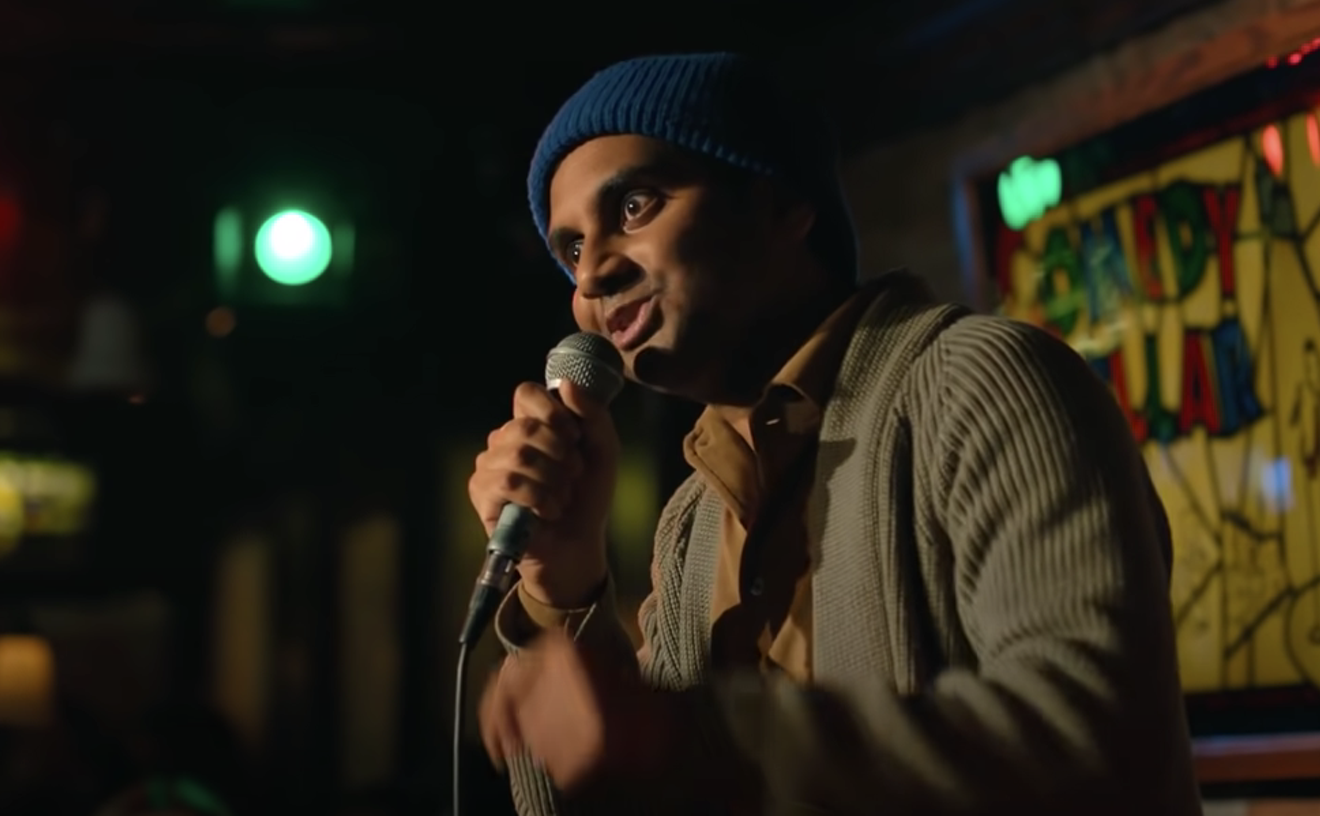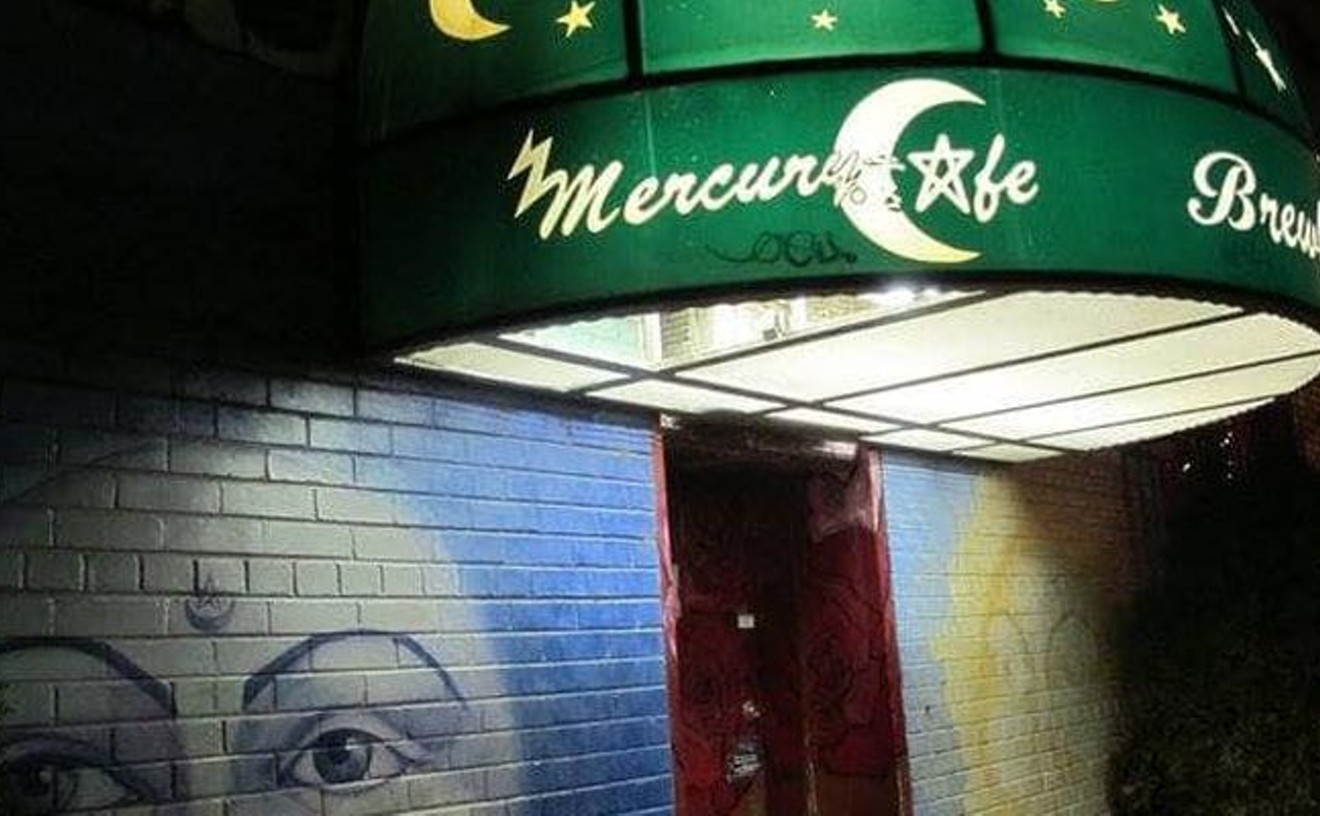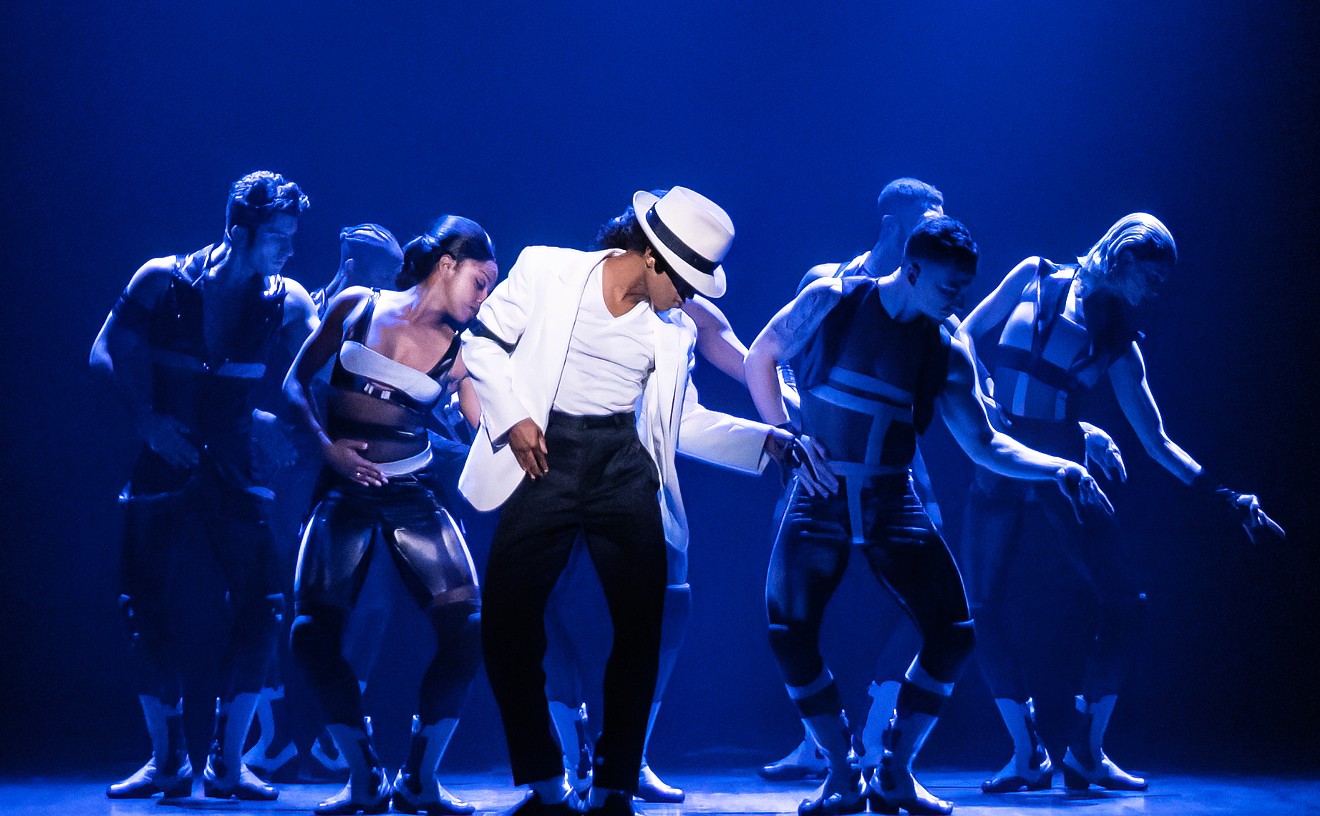Neal Cassady, inspiration for the Beat Generation, was one of the most powerful literary and pop-culture figures to emerge in the twentieth century. He spent most of his early life in Denver, yet few people in this city seem to know about his legacy, says music-industry veteran Mark Bliesener, himself a Denver resident. In an effort to expand this city's knowledge of Cassady's life, work and global influence, Bliesener is staging the seventh memorial edition of the Neal Cassady Birthday Bash this Saturday, January 30, at the Mercury Cafe.
After spending his formative years on the streets of Denver, Cassady became a wandering literary master as well as a long-running character in fellow Beat writer Jack Kerouac’s tales. At the Birthday Bash, local poets, family members and other devoted artists like Jami Cassady, Molina Speaks and Jennifer Dunbar Dorn will pay tribute to the man with live performances. David Amram, a longtime friend of Cassady and an acclaimed composer and avant-garde musician who connected with the Beats back in Cassady’s heyday, will perform with his quartet. In advance of the big celebration, Westword talked to Bliesener about Cassady and how he brought a slice of Denver's Wild West cool to people around the world.
Westword: For people who aren't familiar with Neal Cassady, why the memorial Birthday Bash?
Mark Bliesener: It always amazed me that I would travel to other parts of the world and people would hear I was from Denver and someone would ask me a question about Neal Cassady or Larimer Street or On the Road. I'd always marvel at this because then I would come home and people here were kind of oblivious to a lot of it, you know? I thought that Denver should honor and acknowledge the fact that the most important pop culture figure of the twentieth century to ever come out of Colorado was Neal Cassady.
He's more important than John Elway or John Denver in terms of what he did for Denver. And he's more important than anybody, really, in terms of what he did to revolutionize the way we use language, specifically in literature. The idea was to respect this guy and just do something in his hometown to remind people of this authentic, cool character — especially in these times when everyone is running around trying hard to manufacture cool in Denver. We have this guy who was respected and worshiped all over the world for his impact.
He wrote a series of letters to guys he went to East High School with who were all at Columbia University. You know, he went to East High for a while and we got him an honorary degree from East a couple of years back as part of the birthday bash. He didn't graduate. But while he was at East, he met a couple of guys who ended up going to Columbia University, and Neal would write letters to them. They would pass those letters around to their crowd — the letters were these stream-of-consciousness, unbelievable fourteen pages, just going on. No one had ever read anything like this before, this kind of writing. Especially in America, immediately post-World War II.
Their circle of friends at that point was Jack Kerouac, Allen Ginsberg — these were all guys who were at Columbia. All of these guys started reading these letters and were like, we want more. Neal went out to visit them and they were completely enthralled with him and his very Western outlook and Western lifestyle. I mean, it couldn't have happened anywhere but Denver.
So he goes to the East Coast and these East Coast smarty-pants guys see this really free character and they all want it; they want his lifestyle. If you're living in Lowell, Massachusetts, where Kerouac grew up, or New York City, where Ginsberg grew up, you can't just get in a car and go 90 miles an hour; you have to come out West to put the pedal down. They found the key to all of this in Neal. In the summer of 1947, Kerouac and Ginsberg moved to Denver — it was like, what in the hell were they thinking? The modern art world is exploding in their faces in New York City at that time and they were living in the undisputed capital of the universe at the end of World War II. New York City was just flowering and they came to Denver? It's like, what were they thinking?
But they wanted Neal. They wanted his lifestyle. They wanted his style of writing. So those letters really launched what people came to know as the Beat movement and the Beat writers. The style was pure Neal — the free association, not a lot of punctuation, just rattling on. The book On the Road, by Jack Kerouac, is about Neal, as several of his books are. He became the inspiration for this whole thing; he is the archetype Beat writer. He's the generator of all things Beat. So much of that impacted pop culture and rock and roll. If you look at that early generation of rockers who were about to write the soundtrack to the '60s, they all grew up reading On the Road. They all grew up enthralled with this stuff — I mean, just look at early Dylan records. Alan Ginsberg is all over them. Dylan is essentially a Beat writer. Neal impacted so much — how we speak, how we consider language and, more to the point, how people write.
What's interesting to me is how Denver came into the fold then as this "Wild West" experience, and how now Denver is again being sold as this cool thing. What makes Denver cool is so subjective, and I think it's important now more than ever to acknowledge someone like Neal Cassady, someone who really embodied what makes a place like Denver really special.
That's the whole thing to me — you said it. He's so real. When you read about him, there is nothing contrived. He couldn't go to Hot Topic to buy his cool clothes, you know? It was just real. If we were looking at Neal by today's standards, we'd probably call him a homeless kid. His dad was an itinerant barber, just kind of trying to cut hair to make enough money. There were always alcohol problems around Neal and he really looked after his dad. Neal grew up on the spit-stained streets of what we now call LoDo and Curtis Park and Five Points. He was following his dad around from crummy little apartment to flophouse to flophouse. He managed to really become educated — he did not have a lot of formal education, but he spent literally years of his life in the library, reading. I mean, he also probably stole more cars than any one single person in the history of Colorado.
But these kids living on the street then, they still wanted to get educated. But he was reading the great books and he was a very spiritual character. He certainly had his own demons along the way, but he was just this genius character. Long story short, he's respected and understood as this generator of pop culture. It's like he's respected and understood every place but Denver! Not to say that there aren't a lot of people here who get it — but that's kind of the point of having this bash every year: to remind people. We're so fortunate to have the Cassady family and they are very cooperative and I do this every year with them. They come into town and David Amram comes in — he worked with both Neal and Jack in those days. David's 85 years old and his quartet is just so good and so cool.
There's continuity to me between slam poetry and Neal Cassady. There were spoken-word elements in Neal. Then there was the musical connection — in the book On the Road, there is very specific stuff about Neal and Jack in Five Points listening to jazz. Neal is turning Jack onto a lot of this stuff. Neal had no problem crossing the color line in the '40s, at a time when not a lot of people did. He was just an interesting character — he was seeking kicks but also seeking education. It was Colorado's big sky and optimistic attitude toward the wide open that made it possible. That's what we're trying to celebrate — there's a real link there. I honest to god believe that Neal's the most important pop-culture figure ever to come out of this state.
For him to have this Wild West attitude and also be a part of a functioning city — that, to me, is what Denver is all about.
He was definitely not a hick, you know? It was a Western attitude, but it's not like he grew up on a ranch or something. Looking at the history of the city and its constant boom-bust cycle and looking at old photos of after World War II and seeing Denver just exploding, it's kind of like right now — it was a big change from what it was. From a post-war thing — and Lowry Air Force Base being here — that attracted a lot of people, and then they stayed. It's kind of similar to what's been happening in Denver in, I don't know, the last two weeks, ten years, whatever it is.
You read this in Neal's letters. When he's writing about growing up here and walking to Ebert Elementary School here, it was a different place, you know? You're right in mentioning the city part of it, too — one of the things that attracted those East Coast guys was that Neal's life was like, twenty-some blocks of flophouses and whorehouses and bars. Because of the railroad, because of the Denargo Market, because of all of the stuff — there was work here for itinerant people. We had a lot of full-time itinerants living in Denver and hanging around.
And what a reflection of Denver today — I mean, it's something we are experiencing nationwide, but the widening gap where some folks do exist in the world of temporary work and boarding-house situations or just straight-up homelessness. I think the modern dilemma is that society has become, well, you're either homeless or you're not. It doesn't leave a lot of room for the folks who don't function within the realms of what's considered appropriate for society — but to me, those are the people who often go on to create the legacy that helps tell our story as a city.
Exactly. And maybe I'm speculating but back then, too, it wasn't like today where people are labeled "homeless." There was more room for a guy to be down on his luck. He needs some help. He needs a job. I don't know, maybe there was a little more of a leveling between people then, where today we're so status-oriented.
That's where Neal's story could be especially helpful — acknowledging why we need to lend a hand or just be more welcoming and compassionate than what is being presented in "New Denver." People like Neal help created a larger story of a city.
It was probably that Western attitude, too. Like, we'll give you a hand up, buddy. That probably helped to make him this character that these East Coast smarty-pants guys wanted some of what he had. Their lives were gray and out here it was blue skies. I mean, certainly Neal's life was not peaches and cream, as he grew up on the streets. It was just the Western outlook — a very different outlook.
The seventh annual Neal Cassady Birthday Bash lights up at 8 p.m. Saturday, January 30, at the Mercury Cafe. Tickets are $20 in advance, $25 at the door. For more information or to purchase tickets, visit the Neal Cassady Birthday Bash website.
[
{
"name": "Air - MediumRectangle - Inline Content - Mobile Display Size",
"component": "12017618",
"insertPoint": "2",
"requiredCountToDisplay": "2"
},{
"name": "Editor Picks",
"component": "17242653",
"insertPoint": "4",
"requiredCountToDisplay": "1"
},{
"name": "Inline Links",
"component": "18838239",
"insertPoint": "8th",
"startingPoint": 8,
"requiredCountToDisplay": "7",
"maxInsertions": 25
},{
"name": "Air - MediumRectangle - Combo - Inline Content",
"component": "17261320",
"insertPoint": "8th",
"startingPoint": 8,
"requiredCountToDisplay": "7",
"maxInsertions": 25
},{
"name": "Inline Links",
"component": "18838239",
"insertPoint": "8th",
"startingPoint": 12,
"requiredCountToDisplay": "11",
"maxInsertions": 25
},{
"name": "Air - Leaderboard Tower - Combo - Inline Content",
"component": "17261321",
"insertPoint": "8th",
"startingPoint": 12,
"requiredCountToDisplay": "11",
"maxInsertions": 25
}
]











